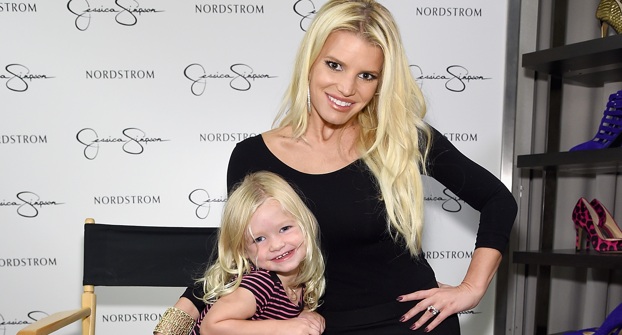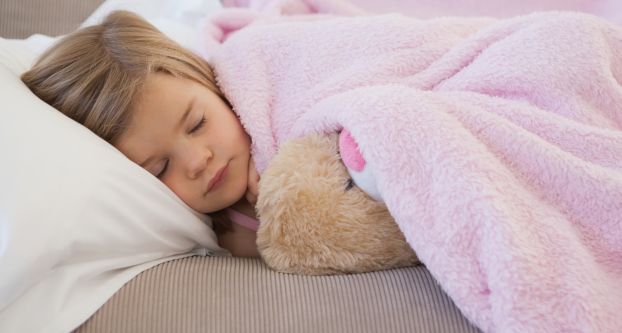 We all know the importance of breastfeeding. Mothers all over the globe try their best to breastfeed their babies soon after the birth – difficult labour, painful C-section, episiotomy – notwithstanding. But did you know that despite all the wisdom about breastfeeding that you gained, its colostrum what actually your body prepares as your baby’s first feed. Also known as pre-milk, colostrum is a yellowish, creamy substance that acts as your baby’s first complete food before mature milk is produced by the body.
We all know the importance of breastfeeding. Mothers all over the globe try their best to breastfeed their babies soon after the birth – difficult labour, painful C-section, episiotomy – notwithstanding. But did you know that despite all the wisdom about breastfeeding that you gained, its colostrum what actually your body prepares as your baby’s first feed. Also known as pre-milk, colostrum is a yellowish, creamy substance that acts as your baby’s first complete food before mature milk is produced by the body.
Though it doesn’t exhibit the colour and character of mature milk and is less dense than breast milk, it has a host of health benefits and can do wonders to your baby’s developing systems. To reap the benefits of colostrum it is important that the mother is allowed to breastfeed the baby right after the delivery. Know more about how to kick start breastfeeding successfully.
What is colostrum?
Colostrum is the pre-milk your body starts to produce about three or four months into pregnancy. If you have leaky breasts during pregnancy, its colostrum that makes its presence felt that early and not breast milk. In some women the colostrum is a clear-fluid like liquid and in some it appears to be a deep-golden and thick creamy substance. The production of colostrum is very subjective and depends on your physiology and the needs of your baby.
During the initial days after birth your body produces enough colostrum for your baby’s requirements. On an average it is believed that a woman produces 50 ml of colostrum in the first 48 to 72 hours after birth. This small quantity is ideal for your newborn for relatively smaller feeds, which is what your baby would need during the initial days.
Busting the myth
There is this myth surrounding the production of colostrum that since it’s not milk it’s not what the baby needs and so it should be expelled, especially in many sects of the society in India. Doctors and experts say it is a myth and actually consider colostrum as ‘liquid gold’, a powerhouse of essential nutrients and antibodies necessary for the baby’s immature systems.
As the baby’s appetite increases colostrum is replaced with an abundant supply of breast milk. Do not restrict your baby from these pre-milk feeds, as production of the breast milk depends a lot on the suckling your baby does at the breasts during those initial days. Also read how comfort suckling helps in the mother and baby bonding.
Apart from being heavily loaded with antibodies and essential nutrients colostrum is:
• Low in fat content
• High in proteins
• High in carbohydrates
• High in vitamin K
• Easy to digest
How does colostrum benefit the baby?
It acts as a natural vaccination: Colostrum has a lot of antibodies in it, higher in comparison to that of mature milk. These antibodies help your little one’s body build immunity and fight against a host of infections. Colostrum is also high in leucocytes or white blood cells that help to protect the baby from bacterial and viral infections. It also protects your baby from respiratory infections such as pneumonia, bronchitis, as well as stomach infections and ear infections, till your baby’s own white blood cells are produced.
It acts as a storehouse of energy: The sugar present in the colostrum provides energy for the baby’s developing needs.
It acts as a complete food: Being your baby’s first feed colostrum is easy to digest and the perfect food for your newborn. Many experts believe that the protein content in the colostrum provides a full feeling to the baby enabling a longer sleep time.
It helps in better growth and development: Colostrum is rich in nutrients like zinc, calcium and vitamin A, B6, B12 and K, all these are essential for your baby’s overall growth and development. Also the high cholesterol in colostrum helps in the growth and development of the nervous system of the baby.
It helps prepare the immature intestine: Being the baby’s first feed colostrum prepares the baby’s digestive system for the mature milk consumption that’s about to begin, sensitizes the baby to foods taken by the mother, it seals the permeable holes of the gastrointestinal tract to prevent foreign bodies from entering the intestines.
It acts as a laxative: Colostrum feeds builds a newborn’s immunity and helps to pass the first tarry stool called the meconium, also expelling bilirubin in the process and limiting the chances of your baby suffering from infantile jaundice.
How to make sure your baby gets the colostrum-feed
Though many mothers want to start breastfeeding right after the birth, but there can be a number of reasons that can put a halt to this natural process. If you are keen to give your baby the pre-milk feed of colostrum, make sure of these:
You talk to your doctor beforehand. Write it in your birth plan and demand for a breast crawl after the birth to give your baby the much needed benefits of this ‘liquid gold.’ Know the benefits of a breast crawl.
To work around your situations. In case of a premature delivery where your baby might be kept away from you in the care unit for good reasons, ask your doctor if you can express colostrum and feed your baby. This healthy pre-milk will boast your premature baby’s health for sure.
You figure out what works best for you and the baby. If you are recovering from a painful C-section or episiotomy look for a position with help from the staff or a family member that is comfortable for you and your baby to feed. In case of a C-section you can try to feed your baby after six hours when the effects of anesthesia start to wade off. But to make sure your baby’s first feed is your colostrum, express your milk before you are wheeled into the OT. Talk to your doctor about it beforehand.
References:
Importance of colostrum and your baby’s developing GI tract. (http://www.publish.csiro.au/)
Immune globulin levels in colostrum and breast milk. (http://ebm.sagepub.com/content/122/4/1098.short)
You may also like to read:
- Decode your baby’s motions
- Which of these 9 reasons are making your baby cry?
- Is your baby teething? Here’s what you should expect
- 10 ways to keep your baby’s eyes safe
- Try these tips to put your baby to sleep
- 5 reasons why crying is good for your baby
- How to manage your baby’s colic
- 8 important weaning foods for your baby
- 12 super foods that boast immunity in kids
- 5 tips to prevent diaper rashes
- 10 things you should not buy for your baby
For more articles on baby care, visit our pregnancy section. Follow us on Facebook and Twitter for all the latest updates! For daily free health tips, sign up for our newsletter. And to join discussions on health topics of your choice, visit our forum.





 So your new born has arrived and you have made a comprehensive shopping list to get all the baby essentials at one go. But before you start to splurge, wait and think. Does your baby need all that is there on offer at the baby store? If you don’t have a definite answer read on to know about things you should never buy for your newborn or at least limit its usage. These products though make life a lot easier but come with some perils.
So your new born has arrived and you have made a comprehensive shopping list to get all the baby essentials at one go. But before you start to splurge, wait and think. Does your baby need all that is there on offer at the baby store? If you don’t have a definite answer read on to know about things you should never buy for your newborn or at least limit its usage. These products though make life a lot easier but come with some perils. I breast feed my baby boy up till 3.5 months of age. I want to try formula now. I have started to give a particular brand of formula milk. After 6-7 hrs of having the milk my baby vomits (projectile vomiting) even if he has only 2 to 4 table spoons of it. Secondly, my baby refuses to take the formula milk whenever I try to give him, which we think he dislikes, as he has got used to breast milk. I want my baby to take formula milk whenever required (if I am not available) so is there any formula milk in India which tastes good (similar to breast milk) and easy to digest? Why is he refusing it?
I breast feed my baby boy up till 3.5 months of age. I want to try formula now. I have started to give a particular brand of formula milk. After 6-7 hrs of having the milk my baby vomits (projectile vomiting) even if he has only 2 to 4 table spoons of it. Secondly, my baby refuses to take the formula milk whenever I try to give him, which we think he dislikes, as he has got used to breast milk. I want my baby to take formula milk whenever required (if I am not available) so is there any formula milk in India which tastes good (similar to breast milk) and easy to digest? Why is he refusing it? Once your newborn is home it might be little overwhelming for you. From bathing your baby, to dressing up, feeding and attending to all its needs you might seem like a big task. Often new mums are perplexed with the little human being in their lap and even basic chores like cleaning your baby might seem like a horrendous task. Here we show you ways to get going with the basics.
Once your newborn is home it might be little overwhelming for you. From bathing your baby, to dressing up, feeding and attending to all its needs you might seem like a big task. Often new mums are perplexed with the little human being in their lap and even basic chores like cleaning your baby might seem like a horrendous task. Here we show you ways to get going with the basics.

 Breastfeeding is important for your baby. It nourishes nurtures and helps your baby bond with you. But at times some babies tend to suckle more than the usual, even if their hunger is satisfied. Many term this prolonged suckling as comfort suckling or comfort nursing.
Breastfeeding is important for your baby. It nourishes nurtures and helps your baby bond with you. But at times some babies tend to suckle more than the usual, even if their hunger is satisfied. Many term this prolonged suckling as comfort suckling or comfort nursing.
 Parenting is not an easy job and it has never been easy. Just when you think that you have managed to do a decent job by incorporating good habits in your child, taught the basic rules of discipline and mannerism, and paved the foundation to be an independent thinking individual, your child might show signs that can indicate that all your meticulous planning and hard work for years has gone down the drain. Because no matter what you teach and tell your child about life and healthy living, peer pressure and the influence of friends has a large role to play in shaping your child’s personality. The company your child keeps always matters. Bad company might just ruin all the character building exercises that you had been practising for so long. Though your child won’t be in the position to differentiate the right from the wrong, here are some signs that can be a total give-away:
Parenting is not an easy job and it has never been easy. Just when you think that you have managed to do a decent job by incorporating good habits in your child, taught the basic rules of discipline and mannerism, and paved the foundation to be an independent thinking individual, your child might show signs that can indicate that all your meticulous planning and hard work for years has gone down the drain. Because no matter what you teach and tell your child about life and healthy living, peer pressure and the influence of friends has a large role to play in shaping your child’s personality. The company your child keeps always matters. Bad company might just ruin all the character building exercises that you had been practising for so long. Though your child won’t be in the position to differentiate the right from the wrong, here are some signs that can be a total give-away:
 While it is a good idea to keep a watch over your baby when she sleeps it might not be a good idea to share the same bed with her. However, this simple act of parenting has its set of proponents and opponents. Many believe that sharing a bed with a newborn increases bonding between the parents and the baby, ensures better sleep and gives the baby a sense of security and comfort.
While it is a good idea to keep a watch over your baby when she sleeps it might not be a good idea to share the same bed with her. However, this simple act of parenting has its set of proponents and opponents. Many believe that sharing a bed with a newborn increases bonding between the parents and the baby, ensures better sleep and gives the baby a sense of security and comfort. Singer Jessica Simpson has two children with husband Eric Johnson and she says she feels sensuous post-marriage. The couple got married in July this year and is on cloud nine. ‘Being married, for me, it defines so much more than even having kids. We still feel like we’re on a honeymoon,’ eonline.com quoted her as saying.
Singer Jessica Simpson has two children with husband Eric Johnson and she says she feels sensuous post-marriage. The couple got married in July this year and is on cloud nine. ‘Being married, for me, it defines so much more than even having kids. We still feel like we’re on a honeymoon,’ eonline.com quoted her as saying. 
 A baby’s cooing or babbling may indicate his/her sound hearing ability, says a study. The reason why the amount of vocalisations often differ between hearing and deaf infants is that vocalisations are primarily motivated by their ability to hear their own babbling, the findings showed.
A baby’s cooing or babbling may indicate his/her sound hearing ability, says a study. The reason why the amount of vocalisations often differ between hearing and deaf infants is that vocalisations are primarily motivated by their ability to hear their own babbling, the findings showed.




